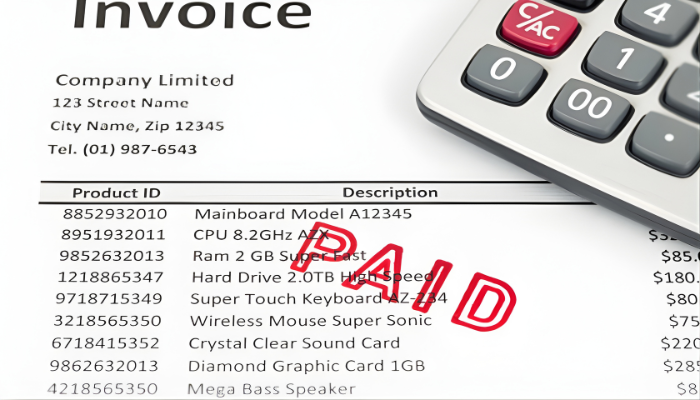
If you run a staffing agency, you already know that employment taxes are one of your largest and most unavoidable expenses. Every payroll cycle, a portion of wages must be set aside for federal, state, and local tax obligations, including Social Security, Medicare, and unemployment taxes (FUTA).
For many staffing agencies, this isn’t just another line item—it’s a constant cash flow challenge. Clients often take 30, 60, or even 90 days to pay invoices, but payroll taxes have strict deadlines. When cash is tight, it’s tempting to redirect tax funds to cover immediate expenses. However, falling behind on payroll taxes is one of the most dangerous financial mistakes a staffing agency can make.
The IRS doesn't take unpaid employment taxes lightly. If you miss payments, penalties stack up quickly, and before you know it, you could be facing tax liens, asset seizures, and legal action. Once you’re behind, catching up becomes significantly harder, especially when you’re waiting on slow-paying clients.
That’s where factoring comes in. Instead of waiting months for payments, factoring allows you to convert unpaid invoices into immediate cash, ensuring you have the working capital to cover employment taxes on time, every time, without relying on emergency loans or risky financial decisions.

Why Staffing Agencies Struggle with Cash Flow
If you’ve ever worried about making payroll or struggled to keep up with monthly expenses, you’re not alone. Staffing agencies frequently deal with cash flow gaps, due to:
- A major client switching to a competitor
- Clients slowing down their payment cycles
- Seasonal fluctuations in the job market
- Unexpected business expenses that drain reserves
When revenue is delayed, businesses are often forced to go into survival mode—cutting costs, delaying payments, or redirecting tax funds to cover payroll. But employment tax debt adds up fast, and once you fall behind, the IRS can take swift action.
If left unresolved, the IRS can file a tax lien on your business, claiming your assets. This makes it even harder to recover, as it can block financing options and limit your ability to operate.

How Factoring Helps You Stay Current on Employment Taxes
Employment tax deadlines don't wait for slow-paying clients. If cash flow shortages are putting your tax payments at risk, factoring can provide a consistent financial cushion.
Instead of waiting 30 to 90 days for clients to pay invoices, factoring advances 80-90% of the invoice value within 24 to 48 hours. This means you can:
- Cover payroll taxes on time avoiding penalties and interest
- Keep your business IRS-compliant without dipping into emergency funds
- Focus on growth instead of stressing over late client payments
 How the Process Works:
How the Process Works:
- Apply for Factoring - A factoring company evaluates your clients' creditworthiness—not yours—to determine eligibility. This makes factoring an accessible financing option, even if your business doesn’t have strong credit or a large cash reserve.
- Submit Invoices – Once approved, you can submit outstanding invoices for immediate funding. Unlike traditional loans, there’s no need to take on debt—factoring simply unlocks the capital you’ve already earned.
- Receive Funds Quickly – Instead of waiting 30 to 90 days for clients to pay, you’ll receive up to 90% of the invoice value within 24-48 hours. This fast access to cash ensures you can cover payroll taxes on time, avoiding penalties and IRS issues.
- Factor Collects from Clients – The factoring company handles collections directly with your clients, freeing you from the hassle of chasing down payments. This means you can focus on running and growing your staffing agency without worrying about slow-paying customers.

What If Your Company Has an IRS Lien?
When the IRS places a federal tax lien on your business, it secures the government’s claim to all of your company’s assets, including accounts receivable. In most cases, this makes it difficult, if not impossible, to secure financing, as lenders and factoring companies typically require a first-priority claim on the invoices they purchase.
However, factoring may still be an option if the IRS agrees to subordinate its lien. Subordination means the IRS allows the factor’s lien to take priority over the government’s claim on specific assets, such as outstanding invoices. The IRS may approve subordination if the factoring proceeds are used to pay off delinquent tax liabilities or improve the company’s ability to remain compliant with future tax obligations.
If your business has an IRS lien and you’re considering factoring, here’s what you need to know:
- You must apply for lien subordination (IRS Form 14134). This process requires detailed financial records and a clear plan for how factoring will support repayment.
- Approval isn’t guaranteed, but the IRS may grant subordination if they determine that factoring improves their ability to collect outstanding taxes.
- Working with a factor experienced in IRS lien situations can help streamline the process and improve the chances of approval.
With factoring, you don’t have to scramble for funds to meet payroll tax deadlines or risk late fees. Instead, you gain a steady, predictable cash flow, keeping your business compliant and financially stable.

Factoring Can Help Keep Your Business IRS-Compliant
Falling behind on employment taxes can cripple a staffing agency, but you don't have to risk IRS penalties, liens, or asset seizures.
With factoring, you can turn unpaid invoices into immediate working capital, ensuring your business stays financially healthy and compliant—even if your clients take months to pay.
If cash flow gaps are putting your tax payments at risk, factoring could be the key to stabilizing your finances and keeping your business moving forward.
*Updated from January 7, 2016, to include the latest insights on employment tax compliance, factoring benefits, and IRS lien considerations for 2025.















